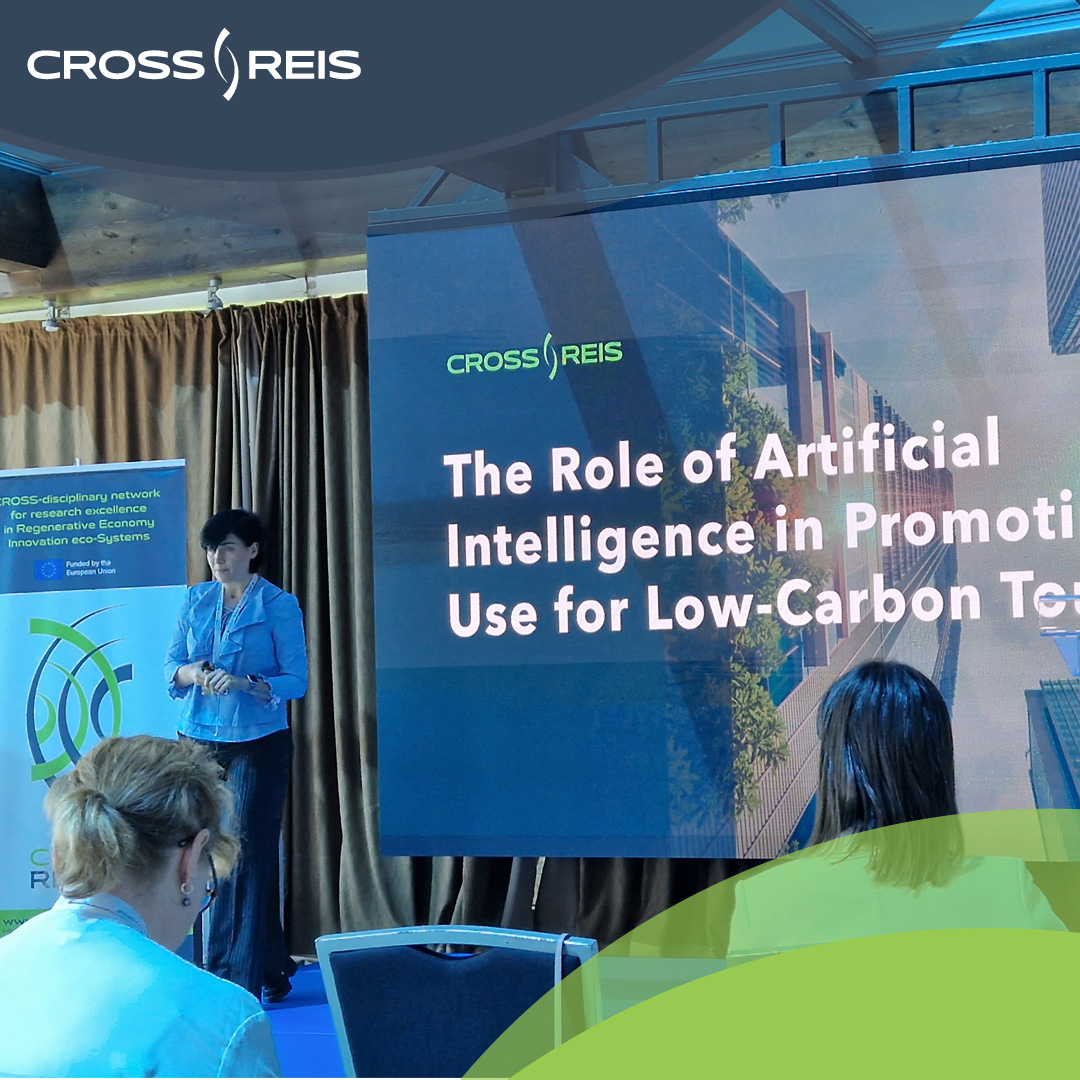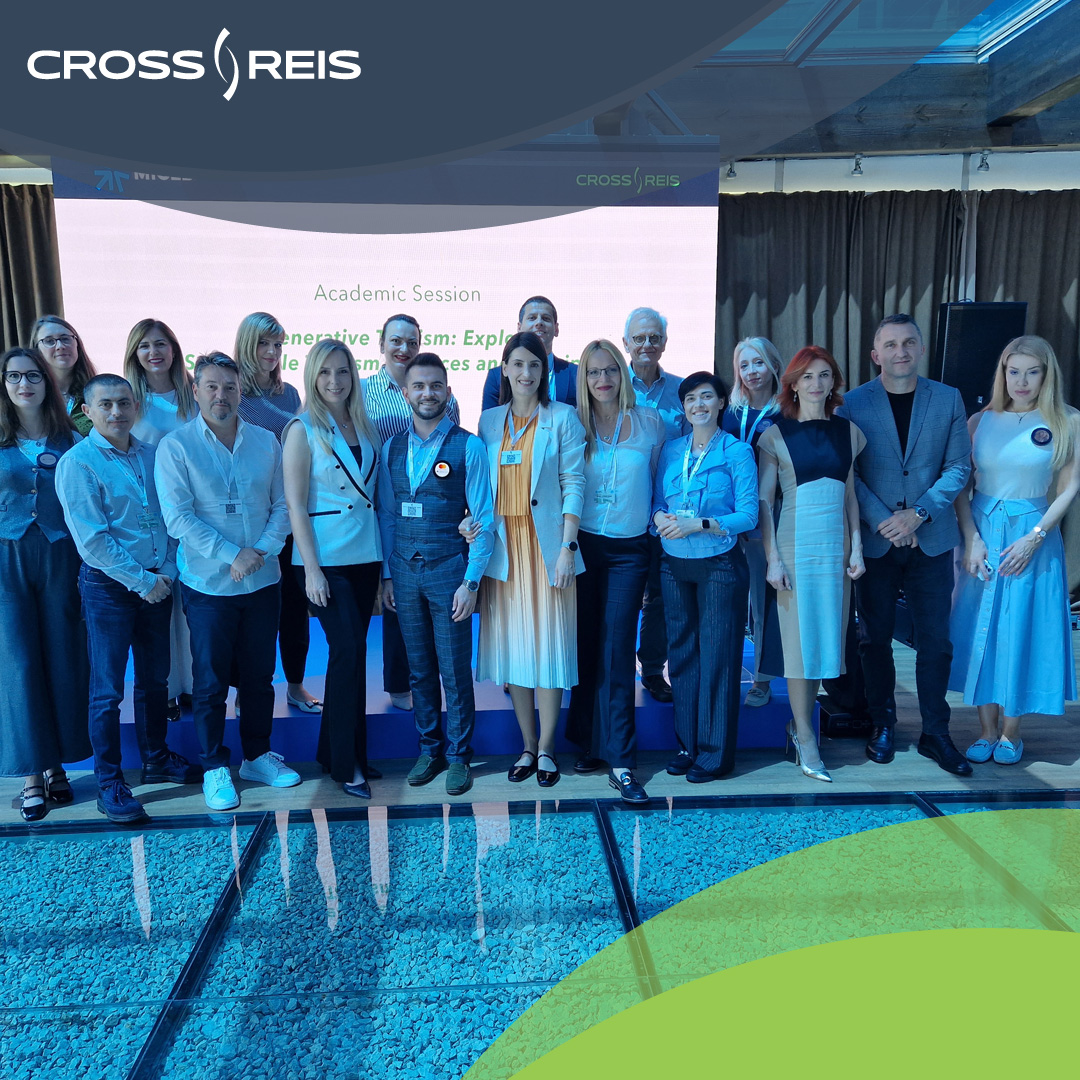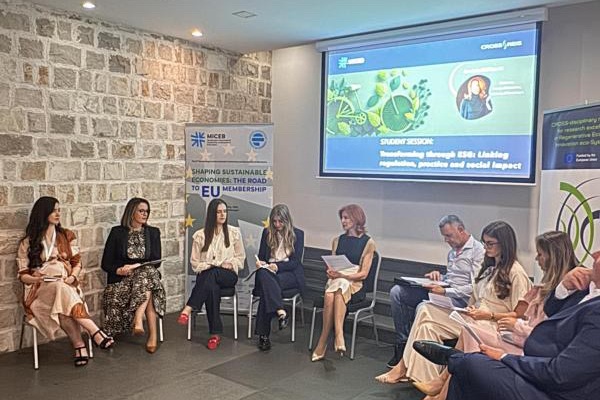

From May 29 to 31, 2025, the Montenegrin International Conference on Economics & Business (MICEB 2025) took place in Budva, Montenegro, gathering leading researchers, business leaders, and policymakers under the theme “Shaping Sustainable Economies: The Road to EU Membership.” The Conference officially opened with welcome addresses from Mijat Jocović (Dean, Faculty of Economics, UoM) and Jakov Milatović (President of Montenegro)



As a special highlight of the Conference, a thought-provoking keynote lecture under the title “The Narrow Corridor of Freedom: Possibilities of Its Implementation in a World Dominated by Elephants – What About Small Countries?” was delivered by Prof. James A. Robinson, renowned political economist from the University of Chicago and 2024 Nobel Prize laureate (awarded jointly with D. Acemoglu and S. Johnson).



As part of MICEB2025, a special session was organized within the CROSS-REIS project, focusing on Regenerative Tourism: Exploring Sustainable Tourism Practices and Principles. The session aimed to highlight cutting-edge research and practical experiences in advancing the regenerative economy through tourism, with special attention to circular economy, waste management, and urban biodiversity.
This part opened with a high-level plenary session that explored regenerative tourism through diverse global perspectives and case studies. The session brought together seasoned professionals and academics who are leading innovative practices in hospitality, sustainability, and regional development.



The session began with Prof. Sabine Gebert Persson from Uppsala University, who delivered a talk titled “Sustainable Visits and Future Footprints.” Drawing on her extensive research, she discussed how destination management and tourist behavior can be reimagined to support long-term sustainability. Next, representing the regional perspective, Iva Petrović, Executive Director of the Nordic Business Alliance, focused on the intersection of urban innovation and tourism in her presentation, “Smart Cities & Regenerative Tourism: Roadmap for Sustainable Communities in the Western Balkans.” The discussion then shifted to successful Serbian examples. Irena Gligorijević and Nikola Jakovljević of Hotel Ramonda, located on Rtanj Mountain, showcased their approach to “Branding Green Destinations.” Their case study revealed how the hotel integrates nature, wellness, and sustainability into its brand, offering guests an eco-conscious experience without compromising comfort or service quality.
Boris Mihaljević, General Manager of Plataran Bromo/Borobudur Resort & Spa, shared first-hand experiences from Indonesia. His presentation, “Implementing Green and Regenerative Tourism Principles in Hotel Operations,” addressed the complex challenges of embedding sustainability into daily hotel management. Finally, Marija Todorović, General Manager of Hotel Biogor Wellness & Spa, presented a compelling case for thermal water as the foundation of sustainable tourism. Together, these contributions offered a rich, multidisciplinary look at how regenerative tourism is being practiced and imagined across different contexts.



On day 2, the conference session titled "Transformative Trends in Tourism: Regenerative Approaches and Digital Innovations", moderated by Prof. Milena Lipovina-Božović from the Faculty of Economics, University of Montenegro, brought together a dynamic mix of researchers and practitioners to discuss cutting-edge intersections of sustainability, digitalization, and regenerative thinking in tourism.
This session explored how emerging technologies and regenerative principles are reshaping tourism policy, business models, and visitor experiences. Presenters examined a broad range of topics—from the integration of artificial intelligence in sustainable mobility, to youth engagement in green tourism, to the role of ESG metrics and branding in promoting destination resilience. The session also highlighted case studies on the regenerative potential of tourism in Montenegro and the broader Western Balkans, emphasizing the intersection of environmental responsibility, digital innovation, and inclusive development. Together, these insights pointed toward a future where tourism actively contributes to both sustainability and community wellbeing. The full list of presentations can be found here.



The Student Session held during the conference in Budva was organized as part of the CROSS-REIS project’s broader initiative under the task of establishing a mentorship program to support early-career researchers and interdisciplinary upskilling. By creating a dedicated platform for students to present their research on topics such as ESG reporting, sustainable tourism, and the socio-economic dimensions of environmental policy, the session fostered mentorship, visibility, and professional development for early-career scholars.
